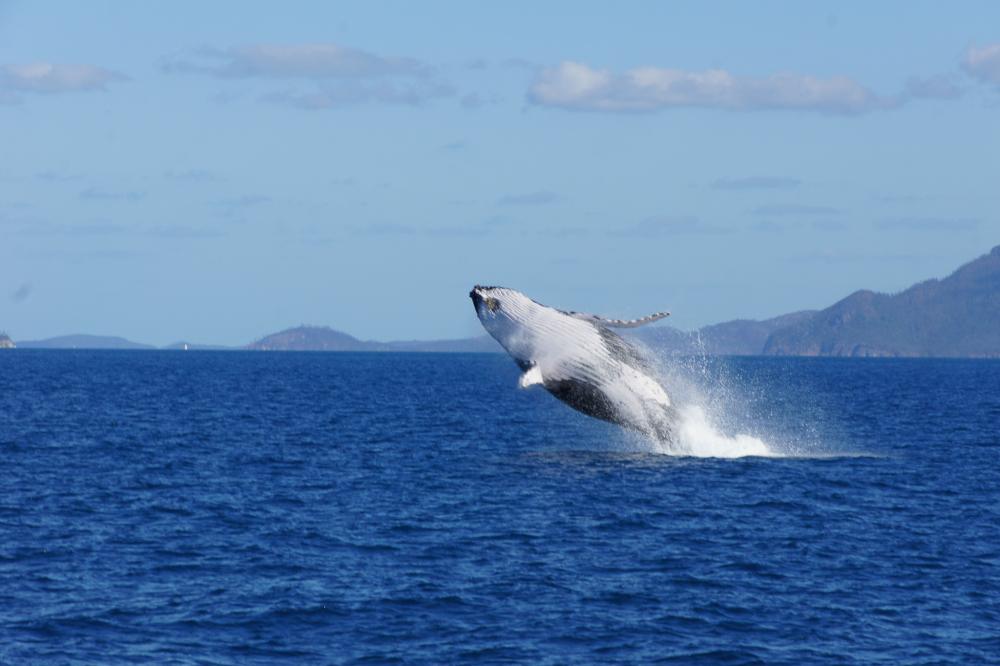It is mid June. I am in the galley of Wings 3, doing my thing, chopping some carrots, cruising on our way out to Blue Pearl Bay. Richie is on the bow, doing his thing, snorkel briefing and entertaining the passengers. Then suddenly, I hear a squeal from a passenger, a shout from Richie.... could it be our first whale sighting of the season?
I nearly slice myself with the knife, I'm that excited. I scramble over to grab the camera and race outside. The carrots can wait. WOW. I cannot describe the excitement, not only our first Humpback whale sighting of the season, she’s giving birth right in front of us. It was such a special moment I think I shed a tear. Even thinking about it now still gives me a thrill.
From June to September each year, the Humpback whales treat us to these extraordinary encounters and sightings almost daily throughout the Whitsundays and the Great Barrier Reef. They travel annually to our warm waters to breed and give birth to their calves.
These majestic, 40 tonne mammals can be seen breaching, tail slapping, fin flapping and spraying from their blowholes as they frolic and play through our waters.



